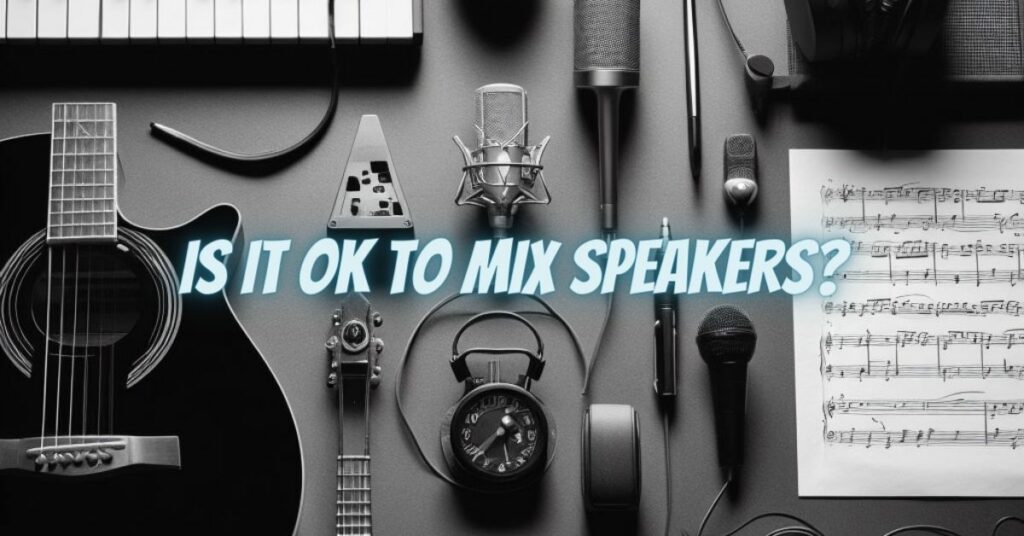Whether or not it is okay to mix speakers is a complex question with no easy answer. It depends on a number of factors, including the type of speakers, the listening environment, and the desired sound quality.
Arguments in Favor of Mixing Speakers
There are a few arguments in favor of mixing speakers. First, it can be a more affordable way to build a speaker system. If you are on a tight budget, you can save money by mixing and matching different speakers.
Second, mixing speakers can give you more flexibility in terms of placement. If you have a small room, you may not be able to fit all of the speakers from a single manufacturer. Mixing speakers allows you to choose speakers that will fit your room and your listening habits.
Third, mixing speakers can give you a unique sound signature. Different speakers have different sonic characteristics. By mixing speakers from different brands or even different lines within the same brand, you can create a sound signature that is tailored to your own preferences.
Arguments Against Mixing Speakers
There are also a few arguments against mixing speakers. First, it can be difficult to get good sound quality from a mixed speaker system. This is because different speakers have different impedances, sensitivities, and frequency responses. When you mix speakers, it can be difficult to ensure that they all work together to produce a coherent soundstage.
Second, mixing speakers can make it difficult to troubleshoot problems. If you have a problem with your speaker system, it can be difficult to determine which speaker is the cause of the problem if you are using a mixed system.
Third, mixing speakers can be aesthetically displeasing. If you have speakers from different brands or lines, they may not look good together.
When to Mix Speakers
There are a few situations where it may be okay to mix speakers. First, if you are on a tight budget and you need to build a speaker system quickly, you may want to consider mixing speakers. However, it is important to do your research and choose speakers that are compatible with each other.
Second, if you have a small room and you need to be flexible with speaker placement, you may want to consider mixing speakers. However, it is important to choose speakers that will work well in your room and produce a good soundstage.
Third, if you are looking for a unique sound signature, you may want to consider mixing speakers. However, it is important to experiment with different speaker combinations to find the sound that you like best.
When Not to Mix Speakers
There are a few situations where you should avoid mixing speakers. First, if you are looking for the best possible sound quality, you should avoid mixing speakers. A mixed speaker system will never be as good as a system that is composed of matched speakers.
Second, if you are not comfortable with troubleshooting audio problems, you should avoid mixing speakers. It can be difficult to troubleshoot problems with a mixed speaker system.
Third, if you are looking for a system that is aesthetically pleasing, you should avoid mixing speakers. A mixed speaker system may not look as good as a system that is composed of matched speakers.
Whether or not it is okay to mix speakers depends on a number of factors, including the type of speakers, the listening environment, and the desired sound quality. If you are on a tight budget, have a small room, or are looking for a unique sound signature, then mixing speakers may be an option for you. However, if you are looking for the best possible sound quality, a system that is composed of matched speakers is always the best choice.
Additional Information
Here are some additional things to keep in mind when mixing speakers:
- Impedance: Speakers have different impedances. It is important to choose speakers with the same impedance so that they will work properly with your amplifier.
- Sensitivity: Speakers have different sensitivities. It is important to choose speakers with the same sensitivity so that they will produce the same volume level at a given power level.
- Frequency response: Speakers have different frequency responses. It is important to choose speakers with complementary frequency responses so that they will produce a full and balanced sound.
If you are unsure about how to mix speakers, it is best to consult with a qualified audio professional.


